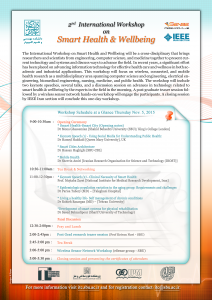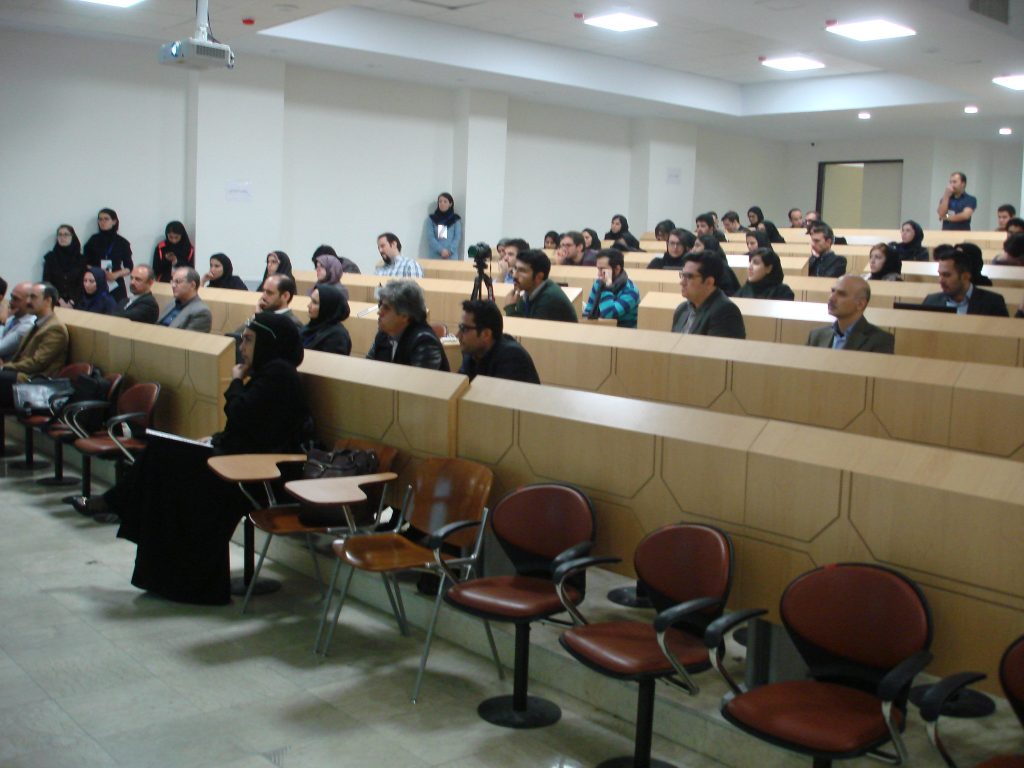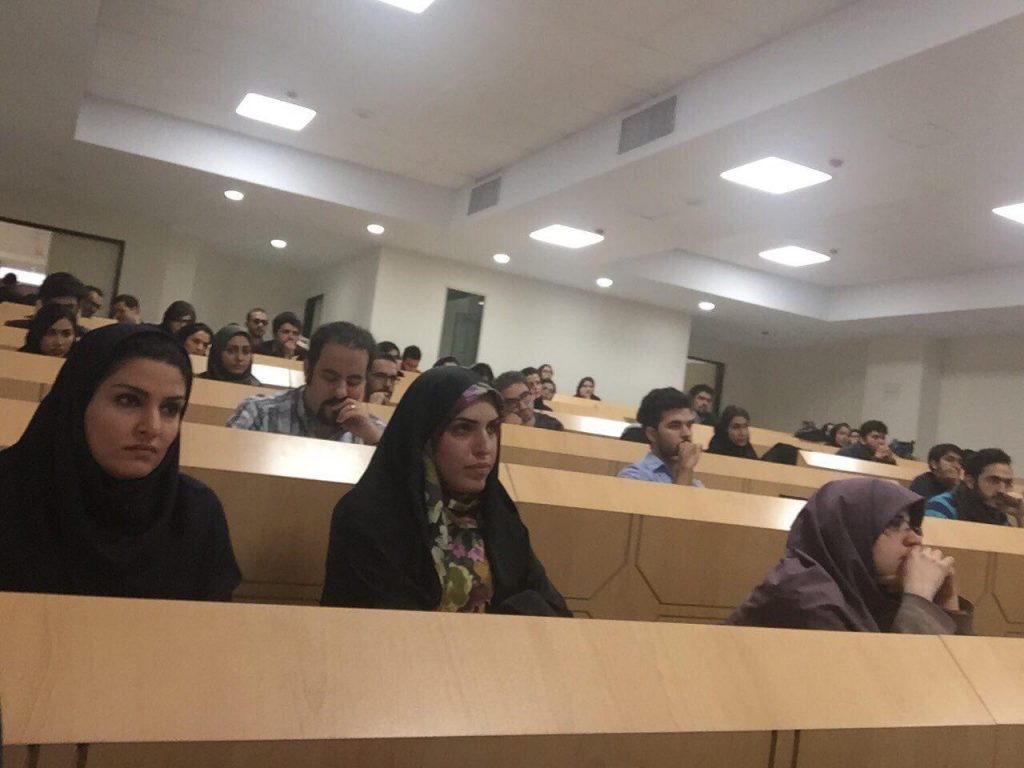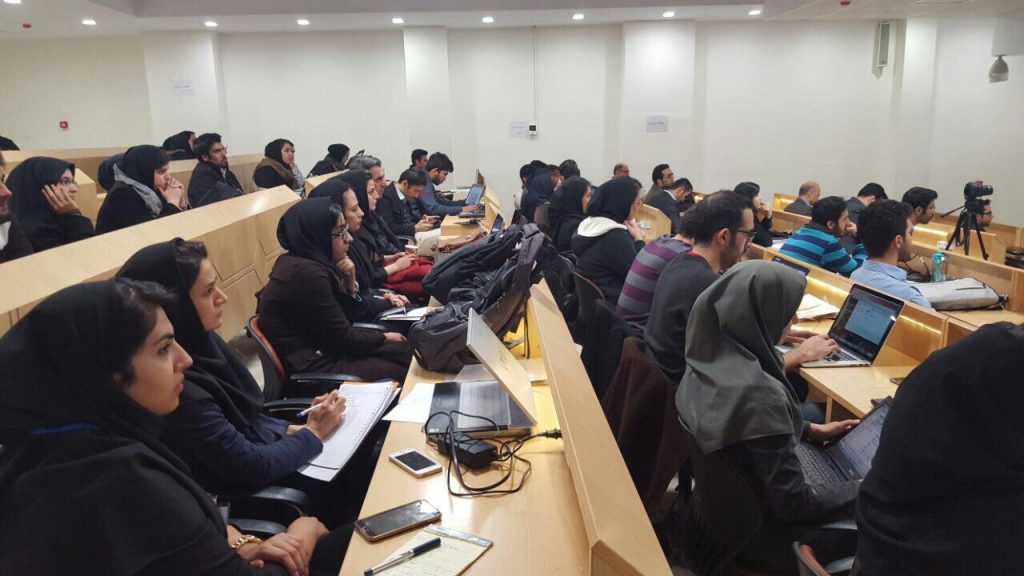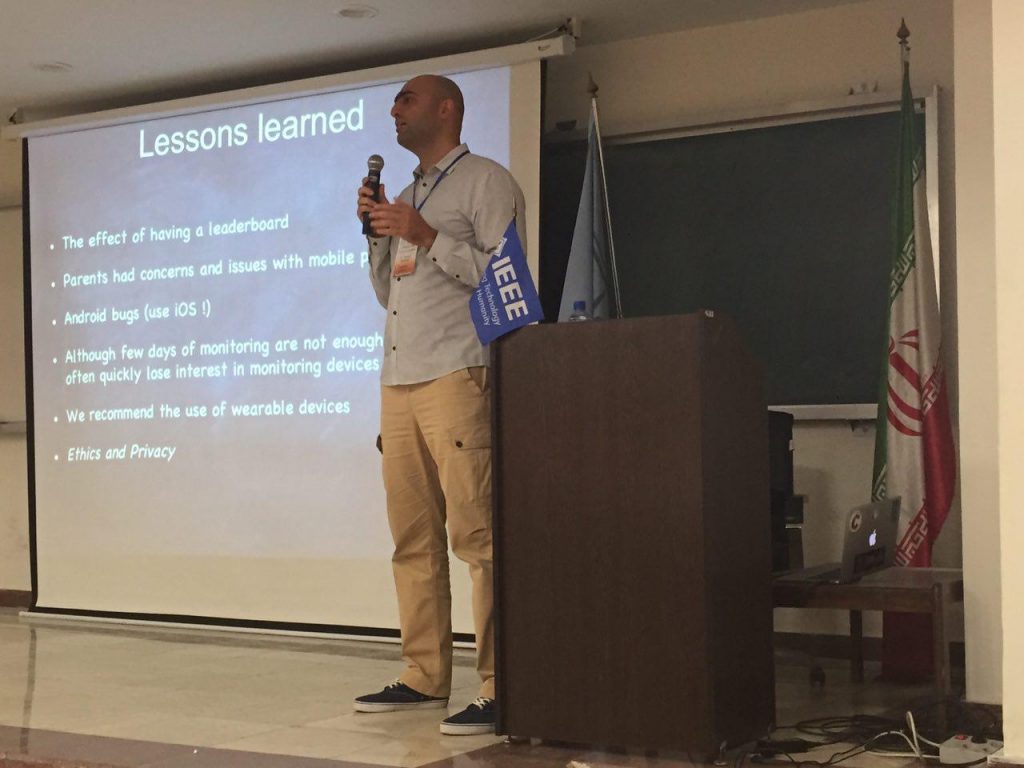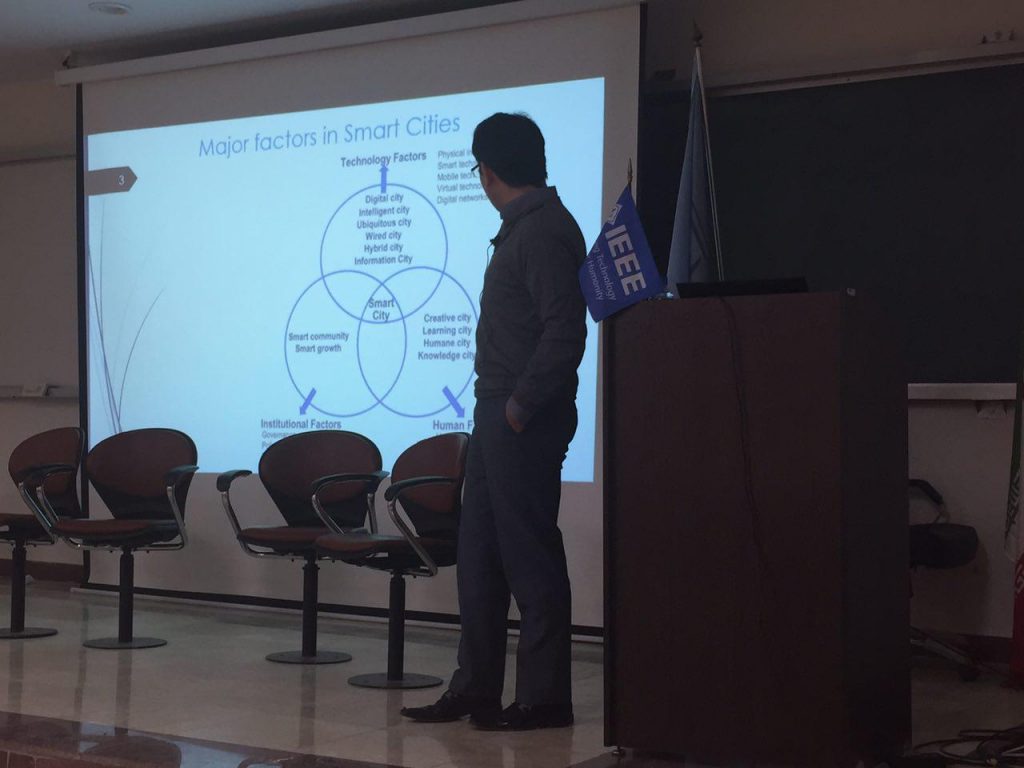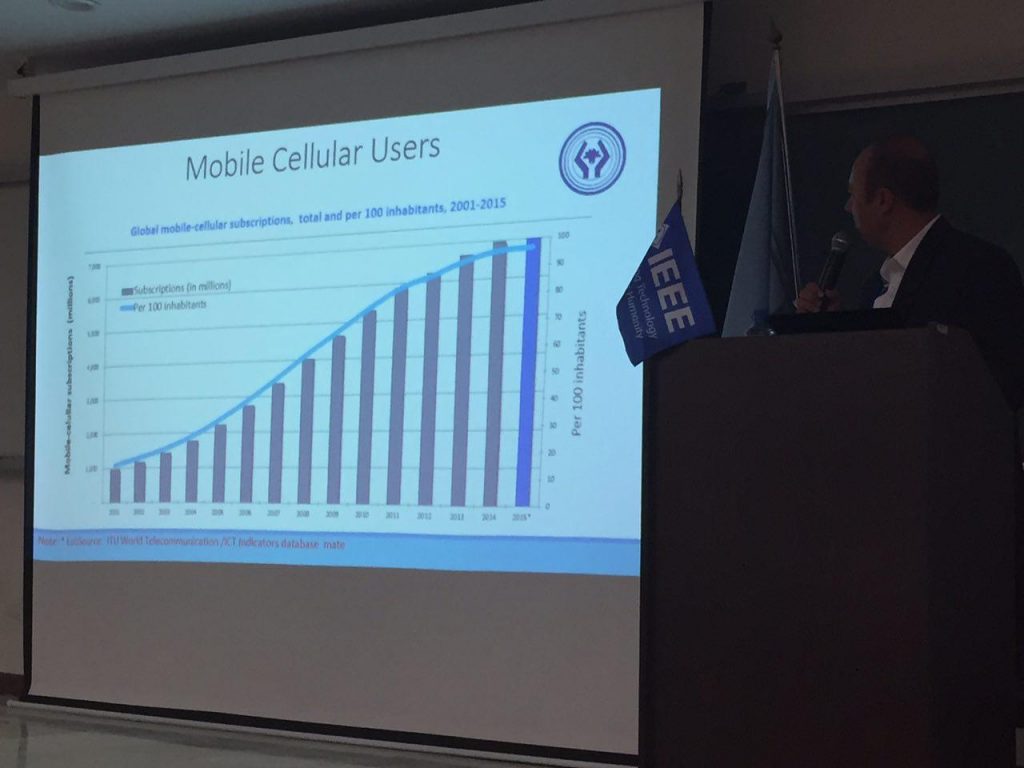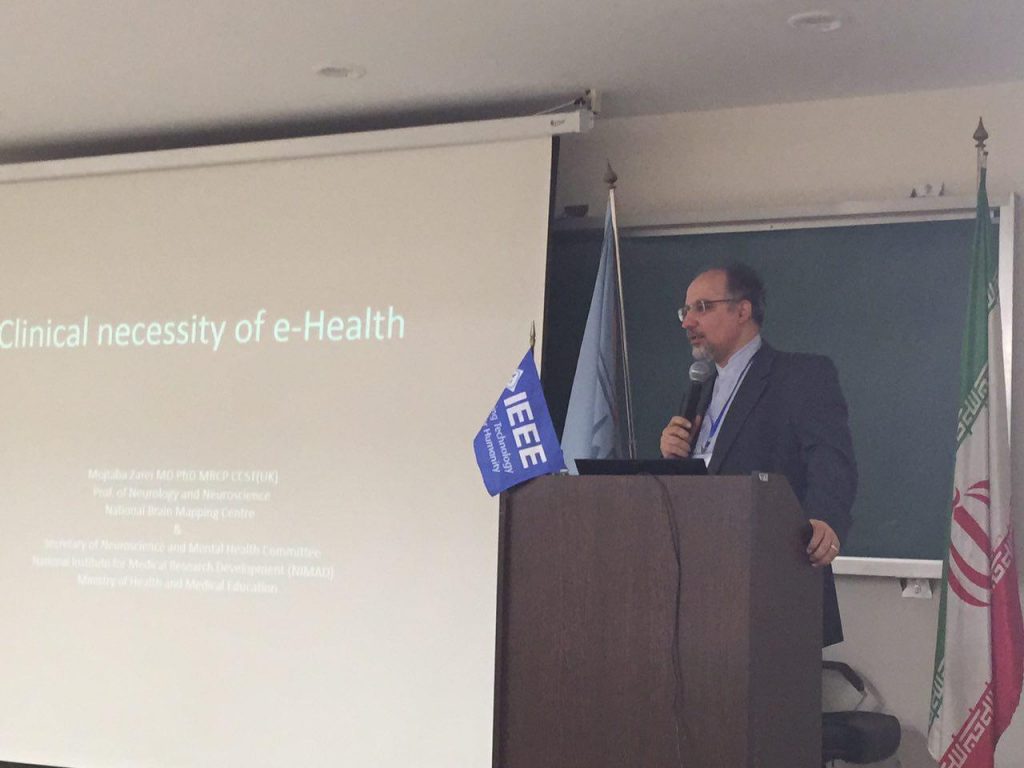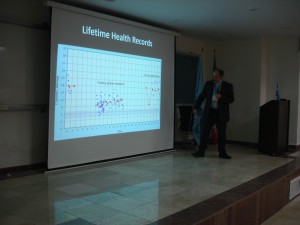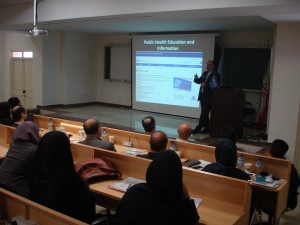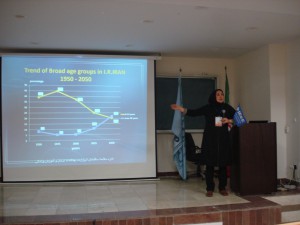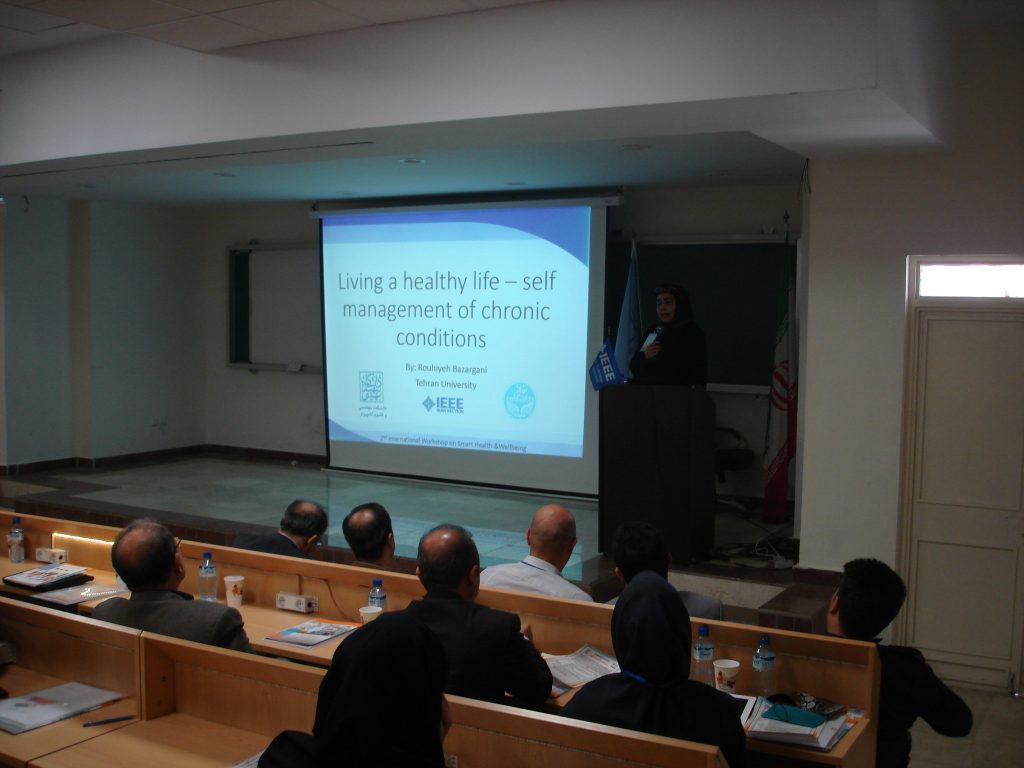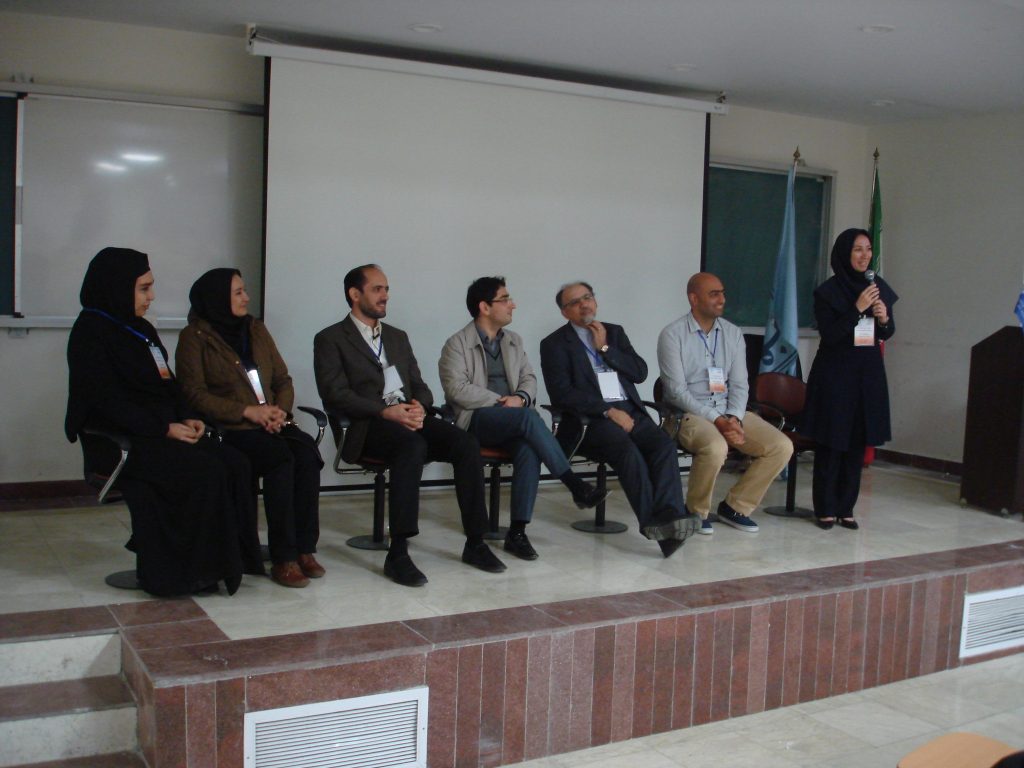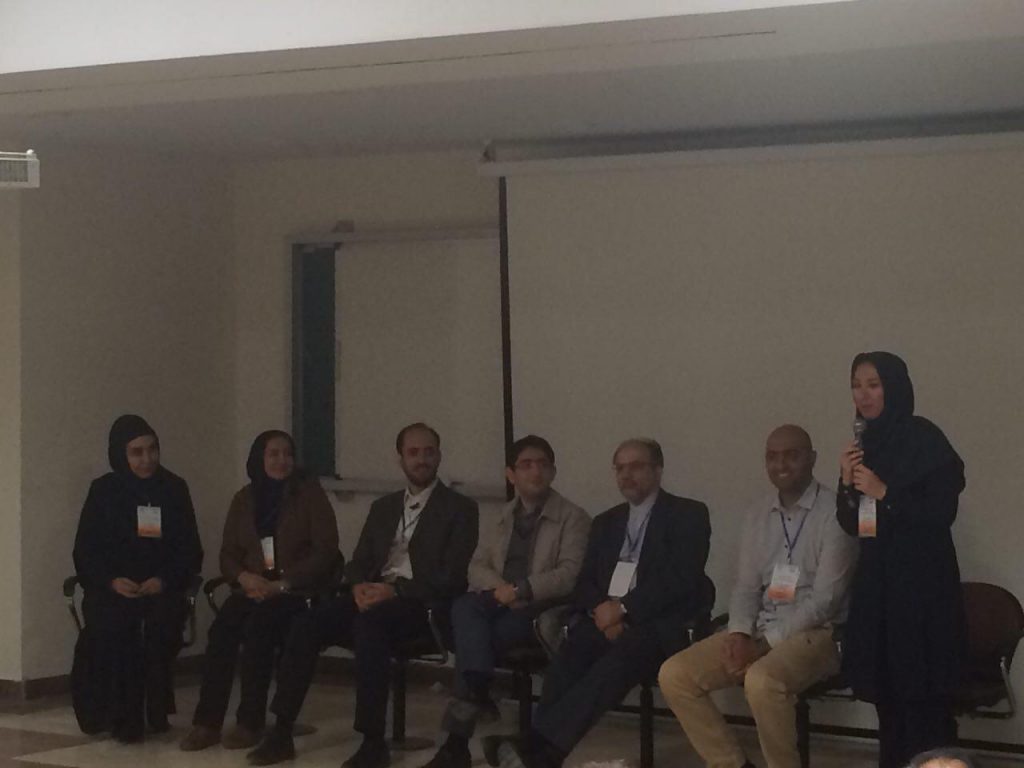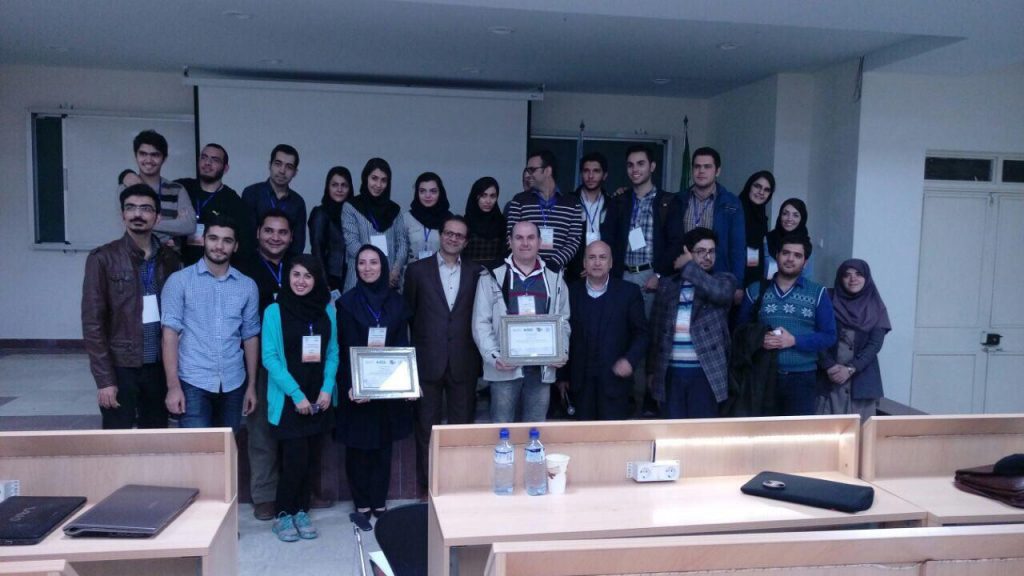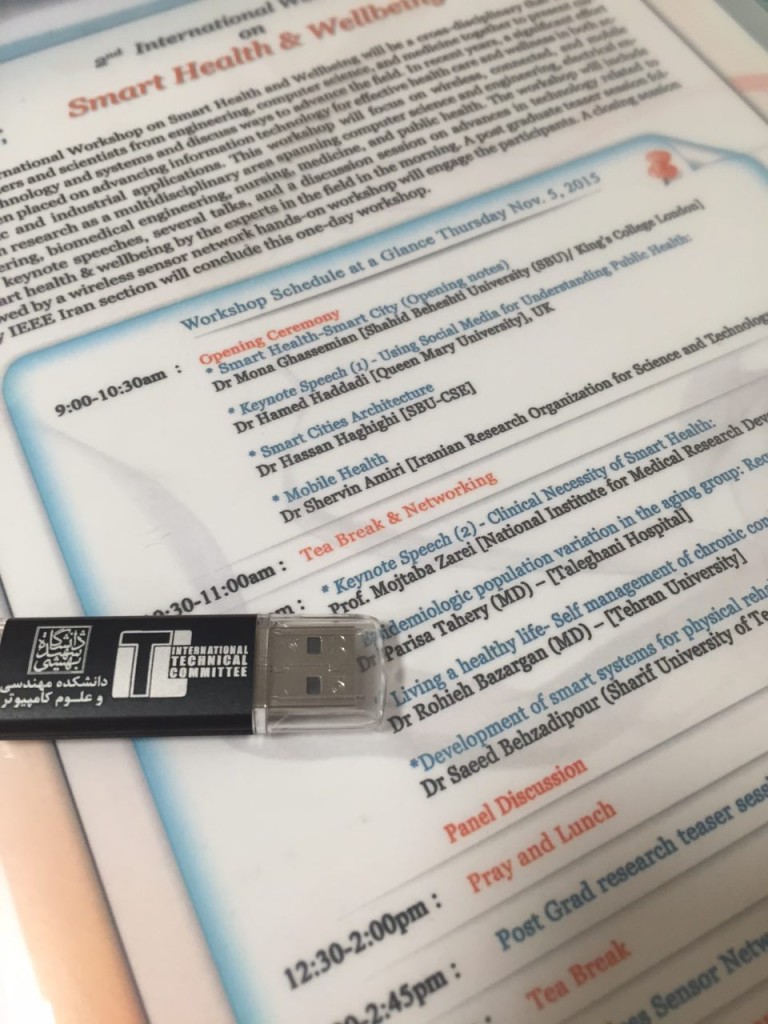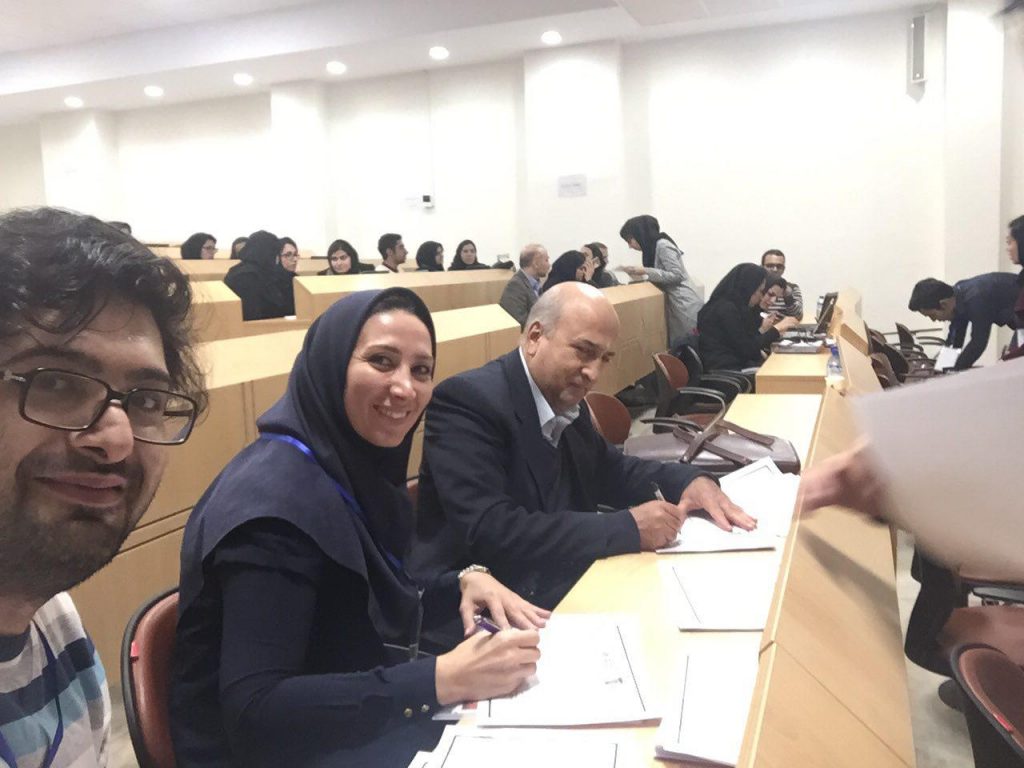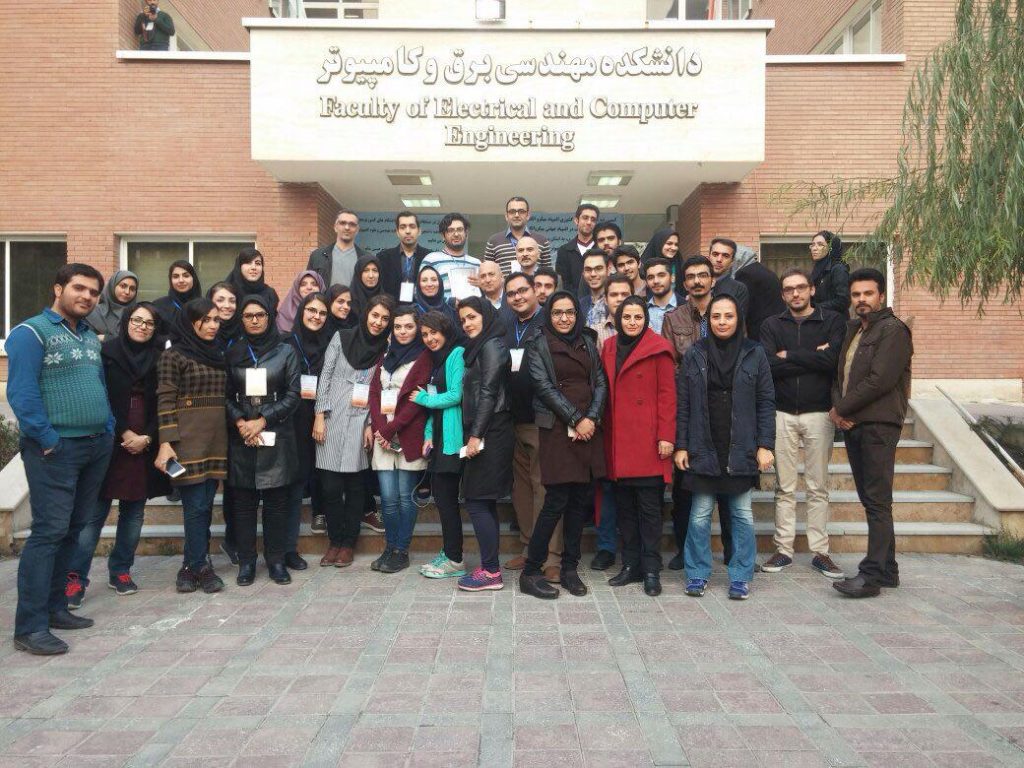2nd Smart Health and Wellbeing Workshop was a one-day workshop which held on 5 November 2015 and focused on wireless, connected and mobile health research as a multidisciplinary area.
As we announced earlier, this workshop had 8 speakers and included two keynote speeches, several talks and a discussion session on advances in technology related to smart health and wellbeing. A poster session and wireless sensor network hands-on workshop were the other parts of this event.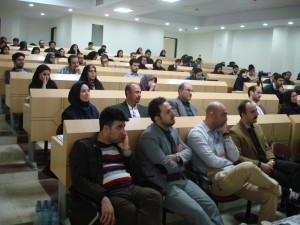
You can find more details about the workshop speeches, speakers and photos in the following.
Opening Speech: Smart Health-Smart City
Dr. Mona Ghassemian [Shahid Beheshti University (SBU)/ King’s College London]
Keynote Speech (1): Using Social Media for Understanding Public Health
Dr. Hamed Haddadi [Queen Mary University], UK
Abstract: Social media provide an invaluable source of information for understanding individuals’ mental and physical health, in addition to the society’s perceptions of health and wellbeing. In addition, today there are a large number of alternative sources of data available: environmental data, ambient sensors, and wearable devices. In this talk I will discuss the challenges and opportunities in gathering these disparate sources of data together to create a holistic view towards individual and public health.
Smart Cities Architecture
Dr. Hassan Haghighi [Shahid Beheshti University, Computer Science and Engineering]
Abstract: In order to realize smart city master plans and projects in Iran, a suitable architecture and framework is needed. The existing architectures and frameworks cannot be simply reused in Iran cities because the goals, strategies and concerns of urban management and other stakeholders need special attention (and differ from country to country). Therefore, a subset of architectures and frameworks must be selected for inspiration and customization, and eventually, a proper architecture and framework for Iranian smart cities should be derived. In this talk, the existing frameworks and architectures in well-known smart city initiatives and projects (including the ITU-T architecture for smart sustainable cities, the smart city reference architecture, the city anatomy, the Navigant Research architecture, Libelium smart world and BSI-PAS smart city framework) are reviewed. Then, a suitable framework for Iranian smart cities is presented.
Mobile Health
Dr. Shervin Amiri [Iranian Research Organization for Science and Technology (IROST)]
Keynote Speech (2): Clinical Necessity of Smart Health
Prof. Mojtaba Zarei [Milad General Hospital, National Institute for Medical Research Development, Ministry of Health and Education of Iran]
Epidemiologic Population Variation in the aging group: Requirements and challenges
Dr. Parisa Tahery (MD)-[Taleghani Hospital]
Living a healthy life- Self management of chronic conditions
Dr. Rohieh Hosseinzadeh Bazargani (MD)-[TU alumni]
Abstract: Huge improvements in medical treatments in the past decades caused a dramatic increase in life expectancy and old person population. Therefore, growth in chronic conditions decreased life span quality, increased life expenses and moral pressure for elderly.
It is prognosticated that the elderly population will rise by almost 10 million by 2019 in Iran and 80 percent of public health expenditure is paid for chronic diseases. Also elderly population is expected to be more prone to chronic diseases.
Development of smart systems for physical rehabilitation
Dr. Behzadipour [Sharif University of Technology]
Abstract: Neural rehabilitation are required by more than 70% of stoke patients as well as those with brain and spinal injuries. There is an extensive need for such rehab service in Iran with a stroke age 10 years lower than the EU countries and 90,000 cases of spinal cord injuries. Development of affordable smart devices to execute rehab protocols with minimum presence of the therapist will pave the road to various new rehabilitation procedures such as tele-rehab.
In this talk, an ongoing project on the development of a smart system neurorehab will be presented. The system comprises of several input devices to capture the movements and/or other reactions of the patients during physical therapy sessions, as well as a computer interface, analysis tools and remote monitoring software. The system facilitates remote design, conduction and evaluation of physical tests and trainings. The computer interface, besides guiding the patient through the protocols, calculates the motion performance indices which provide quantitative data to the physician for in-depth analysis.
panel disscusion
Post Grad research Poster Session
Prof Keivan Navi
Wireless Sensor Network Workshop
The last part of our workshop was WSN workshop by eSense. For further information see WSN workshop page.
